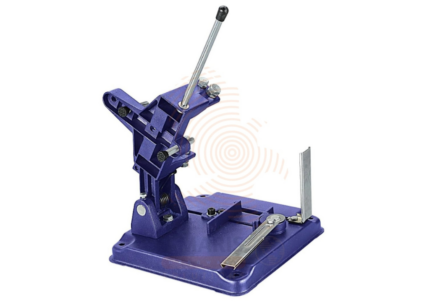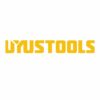
Tile Spacer
$12.31 Original price was: $12.31.$11.69Current price is: $11.69.

Tools Bag
$21.15 Original price was: $21.15.$20.09Current price is: $20.09.
Tool Box
$34.58 Original price was: $34.58.$32.85Current price is: $32.85.
WhatsApp Order
A tool box is a portable container or compartment typically made of metal or plastic, designed to organize, store, and carry a variety of tools used for various purposes, such as construction, maintenance, or repair tasks. It serves as a convenient and efficient way to keep tools organized and easily accessible, facilitating the work of individuals in various trades and DIY projects.
Description
Table of Contents
ToggleTool Box
Uses
-
Construction and Carpentry: Toolboxes are essential for carpenters, builders, and construction workers to store and transport various hand tools such as hammers, screwdrivers, pliers, measuring tapes, and more.
-
Automotive Maintenance and Repair: Mechanics rely on toolboxes to keep their automotive tools organized. Wrenches, socket sets, pliers, and other specialized automotive tools can be easily stored and transported in a toolbox.
-
Home Maintenance and DIY Projects: For homeowners and DIY enthusiasts, a toolbox is indispensable for storing general tools needed for household repairs and projects. This may include screwdrivers, adjustable wrenches, utility knives, and other commonly used tools.
-
Electrical Work: Electricians use toolboxes to organize and carry their specialized tools, such as wire strippers, pliers, voltage testers, and screwdrivers, needed for electrical installations and repairs.
-
Plumbing: Plumbers carry a variety of tools to fix leaks, install pipes, and perform other plumbing tasks. Toolboxes help them keep pipe wrenches, pipe cutters, plunger, and other plumbing tools in one accessible place.
-
Gardening: Gardeners may use toolboxes to store and transport small gardening tools, including pruners, trowels, hand rakes, and gloves, making it easy to move from one gardening task to another.
-
Craftsmanship and Woodworking: Woodworkers and craftsmen use toolboxes to organize and carry specialized tools such as chisels, hand saws, carving tools, and measuring instruments for woodworking projects.
-
Emergency and Survival Kits: Toolboxes can be repurposed to create emergency or survival kits, holding items like flashlights, batteries, first aid supplies, and multipurpose tools for unexpected situations.
-
Art and Hobby Supplies: Artists and hobbyists often use toolboxes to store and transport their art supplies, such as paintbrushes, pencils, sketchbooks, and other creative tools.
-
Electronic Repair and IT Maintenance: Technicians working with electronics may use toolboxes to store precision tools, soldering equipment, and other instruments needed for repairing and maintaining electronic devices.
SAFETY HANDLING PRECAUTIONS
Safety Precautions
-
Personal Protective Equipment (PPE): Wear appropriate PPE, such as safety glasses, gloves, and appropriate footwear, depending on the nature of the tools and tasks involved.
-
Inspect Tools: Before use, inspect all tools to ensure they are in good condition. Check for any signs of damage, wear, or malfunction. Damaged tools can be dangerous and should be repaired or replaced.
-
Proper Lifting Techniques: When carrying a toolbox or lifting heavy tools, use proper lifting techniques to avoid strain on your back or other muscles. Bend at the knees, keep your back straight, and lift with your legs.
-
Secure Tools: Ensure that tools are securely stored in their designated compartments within the toolbox. Loose tools can shift during transport, potentially causing injuries or damage.
-
Close and Lock Toolbox: When not in use, keep the toolbox closed and locked to prevent unauthorized access and to ensure that tools remain securely stored. This is especially important in shared work environments.
-
Tool Organization: Organize tools within the toolbox logically and systematically. This not only makes it easier to find tools but also reduces the risk of accidental injuries when reaching for a specific tool.
-
Use the Right Tool for the Job: Using the wrong tool for a task can be unsafe and may damage the tool or the workpiece. Always use the appropriate tool for the job at hand.
-
Work in a Well-Lit Area: Ensure that your work area is well-lit to enhance visibility. This can help prevent accidents caused by working with poorly illuminated tools or surfaces.
-
Keep Aisles Clear: If you are working in a shared space, make sure that aisles and walkways are clear of obstructions. This reduces the risk of tripping or falling.
-
Emergency Preparedness: Know the location of emergency exits, first aid kits, and fire extinguishers in your work area. Be familiar with emergency procedures and know how to use safety equipment.
-
Tool Maintenance: Regularly maintain and sharpen tools to ensure they function properly. Dull or poorly maintained tools can be more difficult to control and may lead to accidents.
-
Training and Education: Ensure that individuals using the toolbox are properly trained on the tools and equipment they are handling. Proper training reduces the risk of accidents caused by misuse or lack of knowledge.
Related products
Angle Grinder Stand
An angle grinder stand is a tool accessory designed to securely hold and stabilize an angle grinder in a fixed position. It typically consists of a sturdy base with a mounting mechanism that securely attaches the angle grinder, allowing it to be used as a stationary tool. The stand provides stability, precision, and safety, making it easier for the user to control the angle grinder during various cutting, grinding, or polishing tasks. This accessory is particularly useful for applications that require accuracy and consistent results, as it minimizes the risk of unintentional movement or errors while operating the angle grinder.
Heavy Duty – Tools Carrying Case
A "Heavy Duty Tools Carrying Case" refers to a collection or ensemble of robust and durable tools designed to withstand demanding tasks and challenging work conditions. This set typically includes a variety of high-quality hand tools, power tools, or a combination of both, specifically chosen for their strength, resilience, and ability to handle intense usage. The emphasis is on durability, sturdiness, and reliability, making the set suitable for professionals and enthusiasts engaged in heavy-duty tasks such as construction, automotive repair, or industrial maintenance. The goal is to provide users with a comprehensive selection of tools that can endure tough environments and consistently deliver optimal performance.
Plastic Tool Box
A plastic tool box is a portable storage container designed to organize, carry, and protect a variety of tools. Typically made of durable plastic materials, such as polypropylene or polyethylene, these tool boxes feature compartments, trays, and dividers to facilitate the orderly arrangement of tools, ensuring easy access and efficient storage. The sturdy construction of the plastic tool box provides durability and resistance to impact, while its lightweight nature makes it convenient for transportation. These tool boxes are commonly used by professionals and DIY enthusiasts alike, offering a practical solution for keeping tools organized and readily available in a compact and portable form.
Tools Bag
A tools bag, often referred to as a tool bag or toolbox, is a portable container designed to organize, carry, and store various tools and equipment used for maintenance, repair, or other manual tasks. It typically features compartments, pockets, and dividers to keep tools organized and easily accessible, making it convenient for professionals such as mechanics, electricians, plumbers, or anyone else who regularly uses a variety of tools in their work. A tools bag is an essential accessory for efficient and mobile tool management in various trades and industries.
Tools Chest Set
A Tools Chest Set typically refers to a comprehensive set of tools housed within a portable or stationary chest designed for organization and storage. The term "59 pieces" indicates the number of individual tools included in the set, which can vary but often includes a combination of sockets, wrenches, screwdrivers, pliers, and other essential hand tools. The tool chest itself serves as a convenient storage solution, usually featuring drawers or compartments to keep the tools organized and easily accessible. This type of tool chest is commonly used by DIY enthusiasts, mechanics, or anyone in need of a versatile and complete set of tools for various tasks.
Tools Set
A tool set typically refers to a collection of 32 individual tools and accessories designed to assist in various tasks, repairs, or maintenance work. These sets often include a variety of hand tools such as wrenches, screwdrivers, pliers, sockets, and other essential tools needed for common mechanical or household projects. The specific tools included can vary, but the goal is to provide a comprehensive and versatile assortment for a range of applications. Such sets are convenient for individuals who want a compact and organized solution for basic tool needs without having to purchase each item separately.


 Acrylic Sealants
Acrylic Sealants Construction Adhesives
Construction Adhesives Double-Sided Tape
Double-Sided Tape Duct Tape
Duct Tape Electrical Tape
Electrical Tape Epoxy & Resins
Epoxy & Resins Masking Tape
Masking Tape
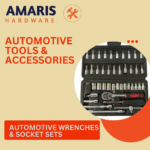 Automotive Wrenches & Socket Sets
Automotive Wrenches & Socket Sets Battery Chargers & Jump Starters
Battery Chargers & Jump Starters Car Jacks & Stands
Car Jacks & Stands Car Wash & Detailing Products
Car Wash & Detailing Products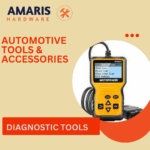 Diagnostic Tools
Diagnostic Tools Tire Inflators
Tire Inflators Vehicle Lighting
Vehicle Lighting Oil & Lubricants
Oil & Lubricants
 Adhesives & Sealants
Adhesives & Sealants Bricks & Blocks
Bricks & Blocks Cement & Concrete
Cement & Concrete Drywall & Plaster
Drywall & Plaster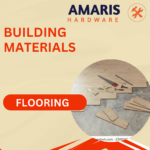 Flooring (Tiles, Wood, Laminate)
Flooring (Tiles, Wood, Laminate) Lumber & Plywood
Lumber & Plywood Paints, Primers & Coatings
Paints, Primers & Coatings Insulation Materials
Insulation Materials Roofing Materials
Roofing Materials
 Circuit Breakers
Circuit Breakers Electrical Cables & Wires
Electrical Cables & Wires Switches & Sockets
Switches & Sockets Fuses & Relays
Fuses & Relays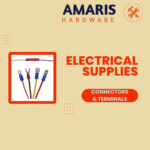 Connectors & Terminals
Connectors & Terminals Electrical Boxes & Panels
Electrical Boxes & Panels Conduit & Fittings
Conduit & Fittings Lighting Fixtures & Bulbs
Lighting Fixtures & Bulbs Extension Cords & Power Strips
Extension Cords & Power Strips
 Anchors
Anchors Bolts
Bolts Clips & Clamps
Clips & Clamps Screws
Screws Nuts
Nuts Washers
Washers Rivets
Rivets Nails
Nails Threaded Rods
Threaded Rods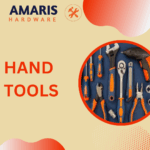
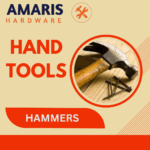 Hammers
Hammers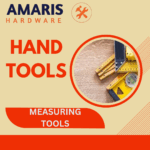 Measuring Tools (Tapes, Levels, Calipers)
Measuring Tools (Tapes, Levels, Calipers)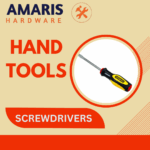 Screwdrivers
Screwdrivers Pliers & Cutters
Pliers & Cutters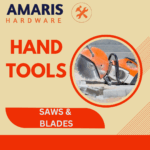 Saws & Blades
Saws & Blades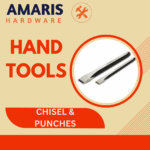 Chisels & Punches
Chisels & Punches Allen Keys & Hex Keys
Allen Keys & Hex Keys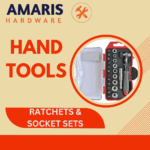 Ratchets & Socket Sets
Ratchets & Socket Sets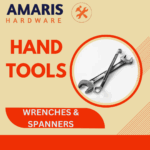 Wrenches & Spanners
Wrenches & Spanners
 Power Tool Accessories (Blades, Bits, Discs)
Power Tool Accessories (Blades, Bits, Discs)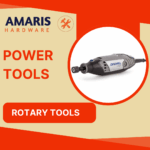 Rotary Tools
Rotary Tools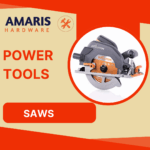 Saws (Circular, Jigsaw, Reciprocating)
Saws (Circular, Jigsaw, Reciprocating)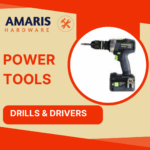 Drills & Drivers
Drills & Drivers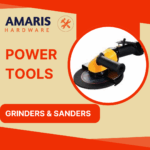 Grinders & Sanders
Grinders & Sanders Heat Guns
Heat Guns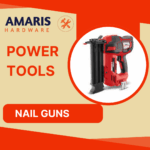 Nail Guns
Nail Guns Impact Wrenches
Impact Wrenches Batteries & Chargers
Batteries & Chargers
 Pipes & Fittings (PVC, Copper, PEX)
Pipes & Fittings (PVC, Copper, PEX) Plumbing Tools
Plumbing Tools Pumps & Motors
Pumps & Motors Sealants & Adhesives for Plumbing
Sealants & Adhesives for Plumbing Valves & Taps
Valves & Taps Water Heaters
Water Heaters Drainage Systems
Drainage Systems Faucets & Fixtures
Faucets & Fixtures Hoses & Tubing
Hoses & Tubing
 Hinges & Latches
Hinges & Latches Hooks & Brackets
Hooks & Brackets Window Hardware
Window Hardware Chains & Cables
Chains & Cables Casters & Wheels
Casters & Wheels Shelving & Storage Systems
Shelving & Storage Systems Door Handles & Locks
Door Handles & Locks Drawer Slides & Cabinet Hardware
Drawer Slides & Cabinet Hardware
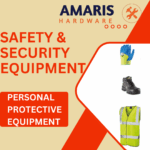 Personal Protective Equipment (PPE)
Personal Protective Equipment (PPE)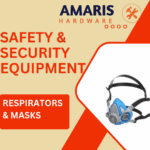 Respirators & Masks
Respirators & Masks Safety Glasses
Safety Glasses Safes
Safes Security Cameras
Security Cameras Gloves
Gloves Helmets
Helmets Ear Protection
Ear Protection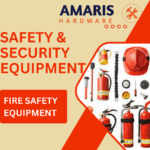 Fire Safety Equipment
Fire Safety Equipment Locks & Padlocks
Locks & Padlocks Motion Sensors & Alarms
Motion Sensors & Alarms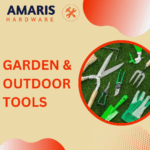
 Garden Fencing
Garden Fencing Garden Furniture Hardware
Garden Furniture Hardware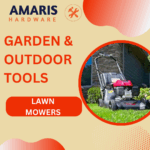 Lawn Mowers
Lawn Mowers Trimmers & Edgers
Trimmers & Edgers Shovels & Spades
Shovels & Spades Rakes & Hoes
Rakes & Hoes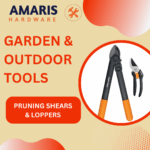 Pruning Shears & Loppers
Pruning Shears & Loppers Watering Systems (Hoses, Sprinklers, Nozzles)
Watering Systems (Hoses, Sprinklers, Nozzles)
 Interior Paints
Interior Paints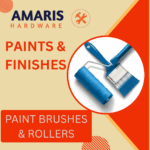 Paint Brushes & Rollers
Paint Brushes & Rollers Paint Strippers & Thinners
Paint Strippers & Thinners Paint Trays & Accessories
Paint Trays & Accessories Exterior Paints
Exterior Paints Spray Paints
Spray Paints Primers & Undercoats
Primers & Undercoats Varnishes & Stains
Varnishes & Stains
 Gaskets & Seals
Gaskets & Seals Hydraulic Fittings
Hydraulic Fittings Industrial Fasteners
Industrial Fasteners Industrial Hoses
Industrial Hoses Lubricants & Greases
Lubricants & Greases Metal Sheets & Bars
Metal Sheets & Bars Bearings & Bushings
Bearings & Bushings Belts & Pulleys
Belts & Pulleys
 HVAC Filters
HVAC Filters Insulation for HVAC
Insulation for HVAC Air Conditioners
Air Conditioners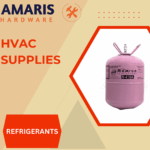 Refrigerants
Refrigerants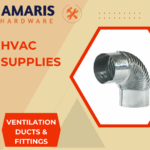 Ventilation Ducts & Fittings
Ventilation Ducts & Fittings Thermostats & Controllers
Thermostats & Controllers Fans & Blowers
Fans & Blowers
 Pegboards & Hooks
Pegboards & Hooks Shelving Units
Shelving Units Storage Bins & Containers
Storage Bins & Containers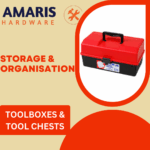 Toolboxes & Tool Chests
Toolboxes & Tool Chests Workbenches
Workbenches Drawer Organizers
Drawer Organizers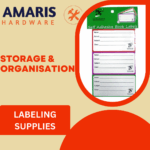 Labeling Supplies
Labeling Supplies
 Welding Accessories (Clamps, Brushes)
Welding Accessories (Clamps, Brushes) Welding Electrodes & Rods
Welding Electrodes & Rods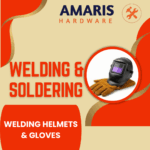 Welding Helmets & Gloves
Welding Helmets & Gloves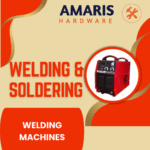 Welding Machines
Welding Machines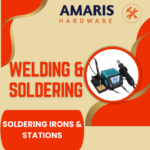 Soldering Irons & Stations
Soldering Irons & Stations Flux & Solder Wire
Flux & Solder Wire
 Generator Accessories
Generator Accessories Inverters
Inverters Portable Generators
Portable Generators Power Inverters
Power Inverters Transfer Switches
Transfer Switches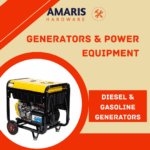 Diesel & Gasoline Generators
Diesel & Gasoline Generators
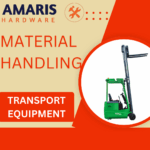 Transport Equipment: Carts, Dollies, and Hand Trucks
Transport Equipment: Carts, Dollies, and Hand Trucks Storage Solutions: Pallets, Racks, and Containers
Storage Solutions: Pallets, Racks, and Containers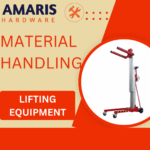 Lifting Equipment: Hoists, Cranes, and Jacks
Lifting Equipment: Hoists, Cranes, and Jacks Conveyors and Accessories: Belts and Rollers
Conveyors and Accessories: Belts and Rollers
